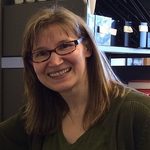The field of public health touches everyone and is by nature interdisciplinary, with important contributions made by epidemiologists, sociologists, physicians, economists, statisticians, scientists, and nutritionists, among many others. Through both coursework and the two-week field experience, students will be introduced to the field of public health based on a social-ecological model. Participation in a local, collaborative, community-based project coupled with study in Minneapolis/St. Paul and Washington, D.C. allows a comparison of public health efforts at the local, state, and national level.
Through readings, discussions, guest speakers, research, site visits, work with community partners, and library exhibit development, students will:
- Consider the cultural context of health and the social determinants of health.
- Be introduced to the impact of policy on our nation’s health.
- Reflect on their own interests and possible future paths.
The fall course will provide an introduction to the principles of public health and to community-based work and research. You will identify a public health-related project to work on in collaboration with a community partner during fall term that will be completed when we are back on campus winter term. In December we will visit with health professionals working in a range of organizations from local free clinics and small, non-profits to state and national government organizations including the Minnesota Department of Health, the Centers for Disease Control and Prevention National Center for Health Statistics, and the Environmental Protection Agency. We will learn about public health policy at the Minnesota AIDS Project and the American Public Health Association as well as through meetings with elected officials when possible. Winter term is a time for reflection, synthesis, completion of projects, and development of a public exhibit.
9 Credits
Fall Term 2020, IDSC 235: Perspectives in Public Health (3 credits)
This course will explore the many dimensions of public health within the United States and provide an introduction to community-based work and research. Public health is by nature interdisciplinary and the course will address local public health issues through the lenses of social, biological, and physical determinants of health. In addition to readings and discussions, the course will incorporate the expertise of visiting public health practitioners and include site visits to local public health agencies. Students will work collaboratively with a community partner on a public health-related civic engagement project selected during Fall term and continued during Winter Break. S/CR/NC, NE, IDS
Winter Term 2021, IDSC 236: Public Health in Practice (6 credits — includes two week winter-break program)
Over the winter break, students will spend two weeks exploring a variety of public health organizations both locally (Minneapolis/St. Paul) and nationally. During the winter term, students will complete their final public health-related civic engagement project in collaboration with a community partner, set their individual project back into the wider context of public health, and prepare to present their experience to a broader audience. ARP, IDS
Debby Walser-Kuntz, Professor of Biology
Debby Walser-Kuntz is an immunologist interested in the potential impact of the environment on the immune system. Her research lab is exploring how the common plastic component, bisphenol A, alters immune responses. In addition to the Public Health in Practice winter break program, which she has led since 2014, Debby teaches Immunology, Introductory Biology, Topics in Virology, an A&I seminar, and a course on Reflective Learning and ePortfolio Development for Biologists.
Students will stay in hotels.
Minnesota Department of Health, Minnesota Aids Project, Cooking at Midtown Global Market, Native American Community Clinic, Art and Healing, Planned Parenthood, National Institutes of Health, Yoga, Washington AIDS Partnership, CDC’s National Center for Health Statistics, American Public Health Association’s Center for Policy, and alumni networking.
Program will take place during the first part of December. Specific dates will be communicated to program participants.
All Carleton-sponsored winter break programs cover the costs of instruction, lodging, some meals, group excursions, public transportation, medical and evacuation insurance, travel assistance, and most cultural events.
Students are responsible for passports and visas (when required), books and supplies, transportation to and from the program sites, and personal expenses during the program. Students will receive a program-specific Additional Cost Estimate at the time of acceptance.
Financial assistance is available. See the Off-Campus Studies website for further information on billing, financial aid, and scholarships.
Application Deadline
2020 Program: April 6, 2020
